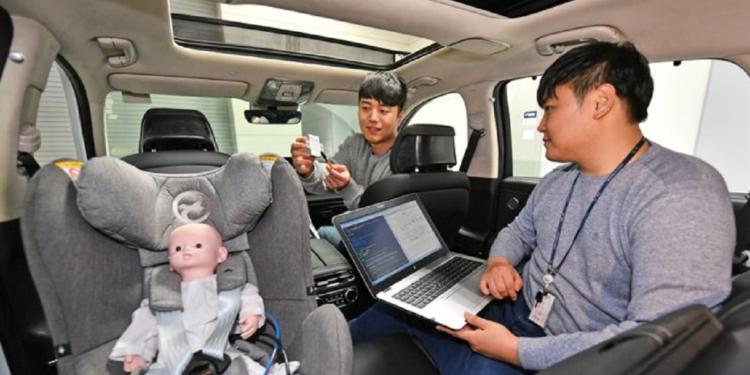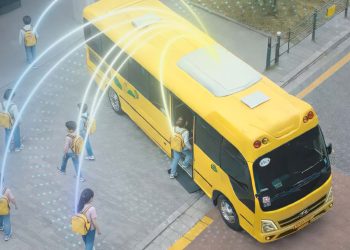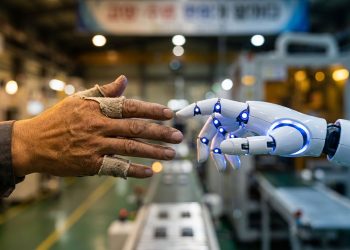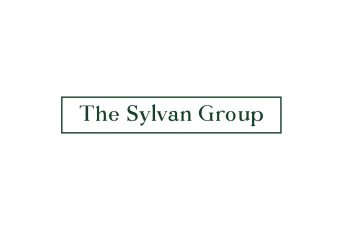Hyundai Mobis reported on Sunday that it successfully developed an in-cabin safety alert system for detecting rear-seat passengers. The system uses radar sensors with a Rear Occupant Alert (ROA) to prevent child vehicular heatstroke deaths. The company plans to introduce the system to global carmakers.
The ROA system gives alerts through the car’s instrument panel or smartphone preventing drivers to leave passengers unattended. The Hyundai Motor Group affiliate said it improved the detection accuracy by using radar sensors instead of an ultrasonic alert system.

The company expects the system to help prevent heatstroke accidents by unattended children left in vehicles during summer. Radars can accurately measure minute movements such as breathing, blood flow, and other biosignals of passengers through their clothes.
Director of the EE Research Center at Hyundai Mobis, Jang Jae-ho, said that the core of the passenger detection system, which mostly acted as a sensor for autonomous driving, is the software algorithm that detects the micromovements of passengers.
He added that the use of radar overcame the limitation posed by camera sensors, which cannot discern babies covered in blankets.
Safety System
Hyundai Mobis said its system, secured with electromagnetic reliability, could operate normally near high-voltage lines and railroad tracks. The company added that it could precisely distinguish adults, infants, and pets. They would also upgrade the system so it could measure passengers’ heart rates by the end of the year.
The parts-making unit of Hyundai said that it could combine the ROA system with safety technologies such as seatbelts and airbags depending on the location and shape of the passenger. The firm said that the technology is not commercially available yet.
As the autonomous vehicles industry grow, auto parts companies strive to develop sensor technologies providing safety features and more convenience.
This in-cabin #radar sensor can detect your baby's movement and even the smallest bio-signals.#MobilityForTomorrow #HyundaiMobis #Mobis #Sensor #RearOccupantAlert #ROA #Baby pic.twitter.com/36C94ju7xD
— Hyundai Mobis Global (@global_mobis) March 27, 2020
Passenger Accidents
The technological development comes after heightened regulations as the number of accidents related to children left in cars increases.
The U.S. National Highway Traffic Safety Administration said that almost 50 children die from being left unattended in hot vehicles every year. In Europe, the ROA system would be mandatory in all new cars starting from 2022.
McKinsey & Company reported that the global vehicle radar market would grow from $4 billion this year to $14 billion in 2030. The consulting firm also said that the in-cabin sensor market would likely grow seven percent annually.







